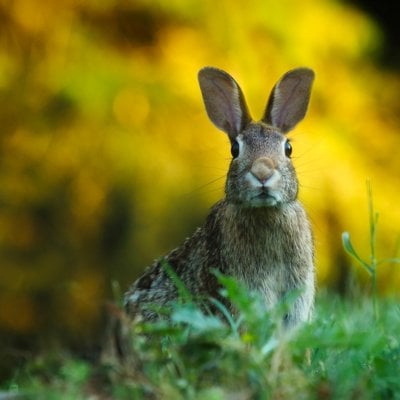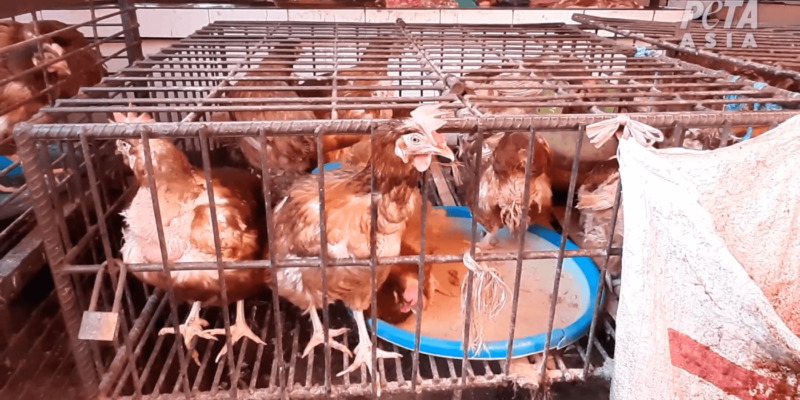Eating Meat Harms the Environment
Eating meat leaves behind an environmental toll that generations to come will be forced to deal with. The meat industry is one of the primary contributors to problems such as pollution, food shortages and the emptying of our oceans. Raising animals for food also requires massive amounts of water, energy, and land.
Raising animals for food is one of the biggest causes of water pollution in the industrialised world. The bacteria, pesticides and antibiotics that are concentrated in animal flesh are also found in their faeces, and these chemicals can have catastrophic effects on the ecosystems surrounding large farms. In some countries, animals raised for food produce 130 times the excrement of the humans who live there! Much of the waste from factory farms and abattoirs flows into streams and rivers, contaminating water sources.
Animals raised for food also produce toxic gasses such as ammonia and methane along with their excrement. According to the WorldWatch Institute, between 15 and 20 per cent of the methane gas emissions worldwide are produced by animals raised for food. These gasses contribute to climate change and can sicken the people who live in communities around farms.
The massive amounts of faeces produced by animals on farms spills over into waterways, contaminating the water and making people sick.
Raising animals for food is grossly inefficient because while animals eat large quantities of grain, they produce only small amounts of meat, dairy foods or eggs in return. Scientists estimate that animals must be fed up to 10 kilograms of grain to produce just 1 kilogram of meat. The world’s cattle alone consume a quantity of food equal to the caloric needs of 8.7 billion people – more than the entire human population on Earth.
According to Worldwatch Institute, “In a world where an estimated one in every six people goes hungry every day, the politics of meat consumption are increasingly heated, since meat production is an inefficient use of grain – the grain is used more efficiently when consumed directly by humans. Continued growth in meat output is dependent on feeding grains to animals, creating competition for grain between affluent meat-eaters and the world’s poor”. Researchers have recently warned that we could face serious food shortages because so much of our grain is now going to feed animals instead of people.
Cows must be fed up to 10 kilograms of grain in return for 1 kilogram of meat.
Fishing is causing serious damage to marine environments worldwide. In the past 50 years, the fishing industry has exterminated 90 per cent of large fish populations, and today, 13 of the world’s 17 major fisheries are depleted or in serious decline. Fishing nets capture all the animals in their path, and for every fish that ends up on a plate, many other animals were caught in nets and killed. During one year alone, an average of 16 kilograms of fish were sold per person worldwide – in the same year, 200 kilograms of marine animals per person were hauled up and discarded as by-catch.
In the past 50 years, the fishing industry has exterminated 90 per cent of large fish populations, and today, 13 of the world’s 17 major fisheries are depleted or in serious decline.
While millions of people around the world are experiencing droughts and water shortages, much of the world’s water supply is being diverted to animal agriculture. It takes 20,940 litres of water to produce 1 kilogram of meat, but only 503 litres of water to produce 1 kilogram of wheat. A pure vegetarian diet requires only 1,137 litres of water per day, while a meat-based diet requires more than 15,160 litres of water per day. It is clear that raising animals for food puts a tremendous strain on our already limited water supply, and water is used much more efficiently when it goes towards producing crops for human consumption.
A pure vegetarian diet requires only 1,137 litres of water per day, while a meat-based diet requires more than 15,160 litres of water per day.
Feeding our appetite for flesh requires fuel to produce fertiliser for crops to feed animals, oil to run the trucks that take them to slaughter and electricity to freeze their carcasses. In some countries, more than one-third of the fuel and raw materials used each year goes towards raising animals for food.
As the world’s appetite for meat increases, countries around the globe are bulldozing huge swaths of land to make more room for factory farms. Clear-cutting forests to create pasture and overgrazing by farmed animals have led to the extinction of indigenous plant and animal species, soil erosion and eventual desertification that renders once-fertile land barren. In fact, grazing animals, such as cows and goats, are a major contributor to the spread of deserts in many parts of India: these animals eat all the plants that grow in dry areas, and without the plants’ roots to hold the soil down, much of the fertile topsoil is washed away by rain. What is left is an arid, lifeless desert where plants no longer grow. As more and more land is irreparably damaged at the hands of the meat industry, what little arable land does remain may not be able to produce enough crops to feed the human population.
Entire ecosystems are being destroyed to make room for factory farms and for grazing animals, who eat all the plants and leave the land barren, increasing the spread of deserts.








